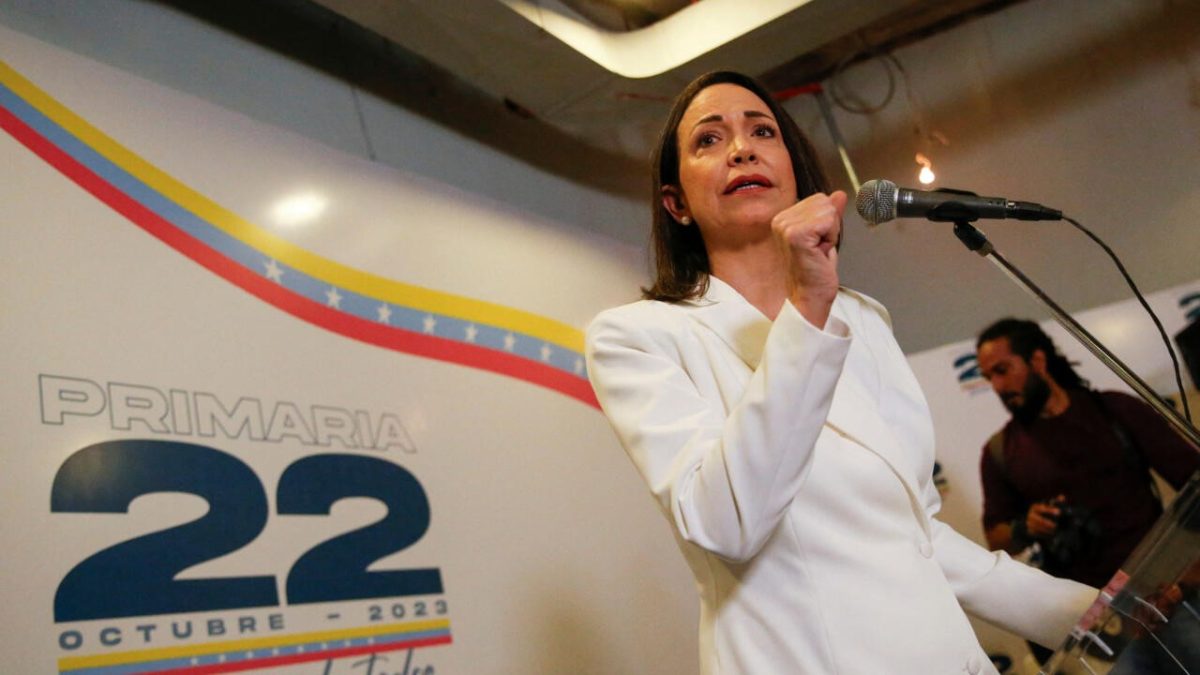BOGOTA/CARACAS, (Reuters) – Venezuela opposition leader Maria Corina Machado said today she wants the United States to do “much more” to press President Nicolas Maduro amid an ongoing dispute over July’s presidential election.
Democracies around the world have criticized the Venezuelan government’s handling of the July 28 vote, which election officials and its top court say was won by Maduro, who has been in power since 2013. Authorities have not released full tallies, blaming a cyber attack.
But ballot box-level tallies posted by the opposition show a resounding victory for its coalition candidate Edmundo Gonzalez. Election observers, including the Carter Center and a United Nations panel of experts, have said the vote was unfair.
By way of an initial punitive measure, the United States had drafted a list of around 60 Venezuelan government officials and their family members who could face sanctions, two sources told Reuters last month.
But it has not yet taken action.
Venezuelan officials – including Maduro and many in his inner circle – and its key oil industry are already subject to wide sanctions by both the U.S. and the European Union.
“I certainly think the United States should do much more and I have been very clear to them and to other countries,” Machado told an online press conference on Thursday, adding that there were international mechanisms to punish those who violate human rights.
An end to the Maduro era would also be to the advantage of international investors and creditors, she said.
Estimates of how much Venezuela owes creditors vary from $60 billion to $150 billion.
“Companies should understand that it is in their best interest, as well as Venezuela’s creditors, for a transition to proceed as fast as possible and not supporting the regime,” Machado said.
The U.S. last month extended a license protecting Venezuela-owned Citgo Petroleum, which has been found liable for the South American country’s debts, through November, while U.S. oil firm Chevron CVX.N operates in Venezuela under a special license.
At least two dozen people died at post-election protests and several major opposition figures have been detained.
Maduro’s government calls the opposition a fascist movement allied with imperialist forces abroad and blames it for the protest deaths. Opponents and human rights groups accuse the government of carrying out a campaign of repression.
Brazil and Colombia, whose leaders have traditionally had friendlier relations with Maduro, expressed profound concern this week over an arrest warrant issued for Gonzalez, which followed weeks of comments from top Venezuelan government officials that Gonzalez, Machado and other members of the opposition should be jailed.
Brazilian foreign policy adviser Celso Amorim called it “an authoritarian escalation,” while Colombia’s foreign minister said the presidents of Colombia, Brazil and Mexico may hold a call with Maduro to express their position.
The call has not yet taken place.
Washington also criticized the warrant and said it was considering “a range of options to demonstrate to Mr. Maduro and his representatives that their actions in Venezuela will have consequences.”
Gonzalez’s lawyer Jose Vicente Haro met with Attorney General Tarek Saab on Wednesday to hand in an affidavit outlining why he and Gonzalez believe Gonzalez violated no laws and why the erstwhile candidate did not attend three summons to testify about the opposition vote tally website.
Venezuelan law does not allow those over 70 to serve sentences in jails, instead requiring house arrest. Gonzalez turned 75 last week.





